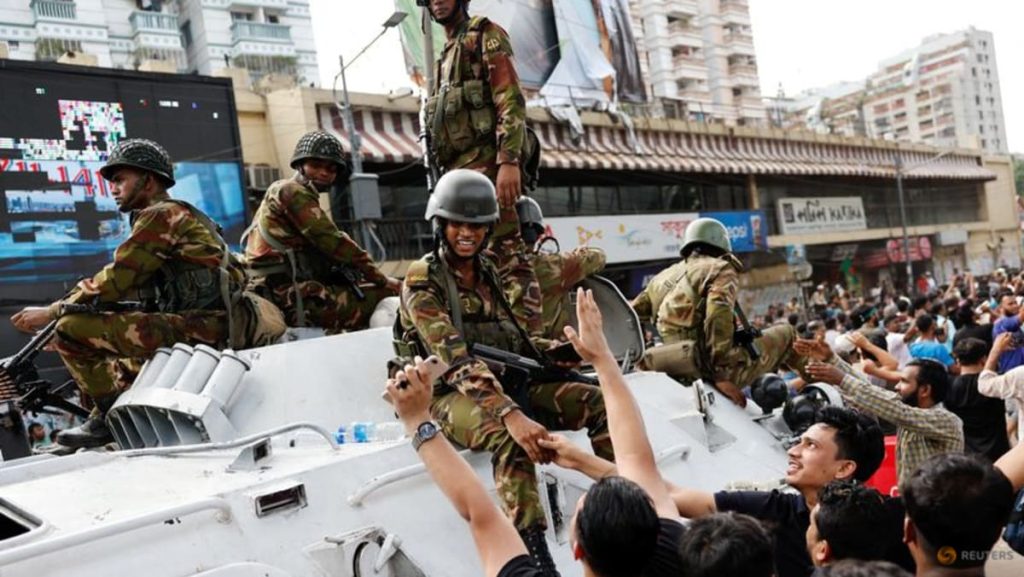Summarize this content to 2000 words in 6 paragraphs “SHORT NOTICE”
On Monday, the first full day of the indefinite nationwide curfew, Hasina was holed up inside the Ganabhaban, or “People’s Palace”, a heavily-guarded complex in the capital Dhaka that serves as her official residence.
Outside, on the streets of the sprawling city, crowds gathered. Tens of thousands of people had answered protest leaders’ call for a march to oust the leader, streaming into the heart of the city.
With the situation spiralling out of her control, the 76-year-old leader decided to flee the country on Monday morning, according to the Indian official and two Bangladesh nationals familiar with the matter.
Hasina and her sister, who lives in London but was in Dhaka at the time, discussed the matter and flew out together, according to a Bangladesh source. They left for India in the early afternoon, local time.
Indian foreign minister Subrahmanyam Jaishankar told parliament on Tuesday that New Delhi had urged “various political forces with whom we were in touch” to resolve the situation via dialogue throughout July.
But as crowds gathered in Dhaka on Monday ignoring the curfew, Hasina decided to resign “after a meeting with leaders of the security establishment”, he added. “At very short notice, she requested approval to come for the moment to India.”
A second Indian official said it was “diplomatically” conveyed to Hasina that her stay had to be temporary for fear of negatively impacting Delhi’s ties with the next government in Dhaka. India’s Ministry of External Affairs did not immediately return a request for comment.
Nobel laureate Muhammad Yunus, whom the protesting students want to lead the interim government after Hasina’s ouster, told The New Indian Express newspaper that India had “good ties with the wrong people … Please revisit your foreign policy.”
Yunus was not immediately available for an interview.
Late in the afternoon on Monday, a Bangladesh Air Force C130 transport aircraft landed at Hindon air base outside Delhi, with Hasina on board.
There, she was met by Ajit Doval, India’s powerful national security advisor, according to the Indian security official.
Delhi had fought to carve Bangladesh out of East Pakistan in 1971. After Hasina’s father was assassinated in 1975, Hasina took refuge in India for years and built deep links with her neighbour’s political elite.
Returning to Bangladesh, she gained power in 1996, and was seen as more sensitive to India’s security concerns than her political rivals. The Hindu-majority nation also regarded her secular stance as favourable for the 13 million Hindus in Bangladesh.
But back in Bangladesh, resentment still lingered even among retired soldiers that Hasina had been allowed to leave.
“Personally, I feel that she should not have been given a safe passage,” said Khan, the veteran. “That was a folly.”


